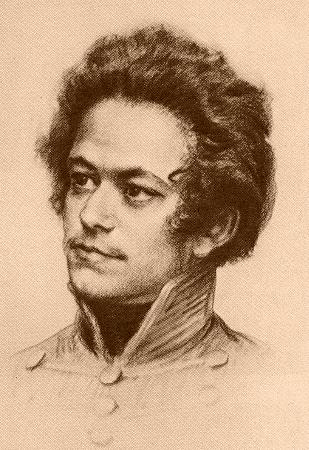
Biography
Karl Marx ranks among the most influential political philosophers of the nineteenth and twentieth centuries. He spawned a far-reaching intellectual and cultural movement, known as Marxism; and a worldwide political organization under the name of communism, both of which followed Marx’s lead by propagating the doctrines of class struggle, historical materialism, and the inherent contradictions of industrial capital. For this reason his ideas are well known and his works are widely available, though his earlier writings, which are more philosophical and less dogmatic than the later economic works, have sometimes been suppressed by Communist publishers.
Marx was born in 1818 in Trier, in the Rhineland, then part of Prussia. Though he came from a long line of rabbis, Marx’s father was a lawyer with liberal views who left Judaism and became a Protestant for social reasons. Marx attended the University of Bonn briefly before becoming a student of law, theology, and philosophy at the University of Berlin. At Bonn he had been a member of the Poets’ Club, which counted many political radicals as members. In Berlin, he joined the Doctor Club, where he associated with the Young Hegelians, whose work he would later adapt for his teaching on historical materialism. During his college years Marx wrote some fiction and poetry; a number of his love poems, written to his girlfriend Jenny von Westphalen, are also available to us. Jenny and Karl met as children, courted as teenagers, married after their studies, had seven children, and lived together through old age.
Marx wrote his doctoral thesis on the difference between the materialism of Democritus and Epicurus. His thesis adviser was the heterodox Hegelian Bruno Bauer, and the thesis was controversial at the University of Berlin for its explicit atheism and overt attacks on theology. Marx was forced to submit it to the more liberal University of Jena, which gave him his PhD in 1841. In Berlin Marx became the editor of the short-lived Rheinische Zeitung, in which he regularly criticized not only the conservative Prussian government, but also socialists whom he thought did not understand either that a real practical struggle was required for revolution, or that incremental political reforms were insufficient and potentially counterproductive. Marx exhibited here his lifelong intellectual and political practice, called for by his theoretical conclusions with regard to the purpose of philosophy, of engaging in political disputes not necessarily to refute his opponents, but to denounce them; and to offer his own teaching, not as possibility or interpretation, but as a necessary fact obvious to anyone without ulterior motives.
After the closing of Rheinische Zeitung, Marx moved to Paris, where he continued his radical activity on behalf of socialism, began to study political economy, and further engaged with the Young Hegelian critique of religion. Indeed, his thought can be characterized very roughly as a synthesis of three themes: socialism, political economy, and the critique of religion. At this time Marx co-edited the one and only issue of German socialist Arnold Ruge’s radical publication, Deutsch-Französische Jahrbücher, in which he published two of his most important works, Contribution to the Critique of Hegel’s Philosophy of Right and On the Jewish Question. Here he began to apply the logic of Hegelian dialectic and adapt the critique of religion offered by the Young Hegelians to economic relations, providing the framework for the later, more detailed critique of political economy and for the“scientific socialism” of Das Kapital. In 1844 Marx published with Vorwärts! a utopian socialist German-language newspaper in France, and wrote his Economic and Philosophic Manuscripts, in which he sought to justify his developing economic theories in Hegelian terms.
1844 was also when Marx met Frederich Engels, writer of The Condition of the Working Class in England in 1844, with whom he will forever be associated. Together they wrote The Holy Family. In 1845 he wrote the brief “Theses on Feuerbach,” which claimed that if man is to be made whole, and not to live an alienated existence, he must change the material conditions that cause that alienation. The task of the philosopher, Marx here expresses most succinctly, is to enlighten the world by changing it.
Marx was expelled from France in 1845. He went to Brussels, where he began, with Engels, to write The German Ideology. While in Brussels Marx helped transform a group with whom he was associated, the League of the Just, into an overt political organization called the Communist League. The Communist Manifesto is a program of action for this League. He imagined the transformation from capitalism to socialism would happen quickly, and expended great energy over the next two years trying to bring it along. Expelled from Brussels, he moved first to Paris and then Cologne, where he started and ran the Neue Rheinische Zeitung. Marx then fled to London, where he lived for the rest of his life in relative poverty. He was employed, though, as a correspondent for the New York Daily Tribune. Marx wrote often on the American slavery crisis, likening slaves to the industrial proletariat. In London Marx wrote the first volume of Das Kapital and made notes for the three additional volumes that were later published by Engels. In 1864 he became involved with the International Workingmen’s Association (now known as the First International), was elected to the General Council, and ultimately prevailed over those in the group, such as Mikhail Bakunin, who disagreed with his understanding of socialism. The First International disbanded in 1876, and when Marx died in 1883 there was no clearly recognized intellectual head of the worldwide socialist movement. Most socialist thinkers positioned themselves in relation to Marx’s thought, and as Marxism seemed to require a chief dogmatist and interpreter of events, competition for this position ensued.
For further biographical reading, see:
The Cambridge Companion to Marx, Ed. Terrell Carver, Cambridge: 1992.